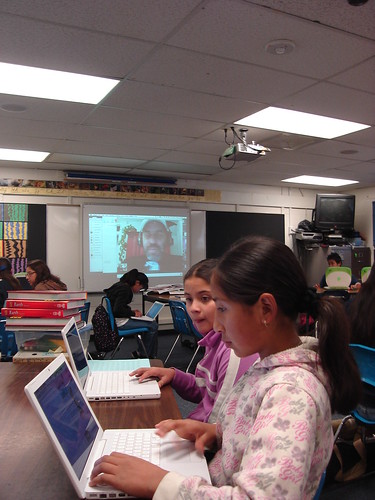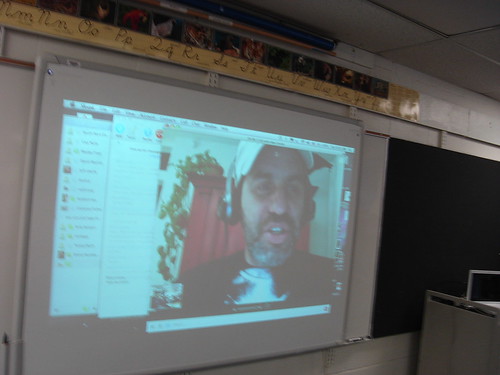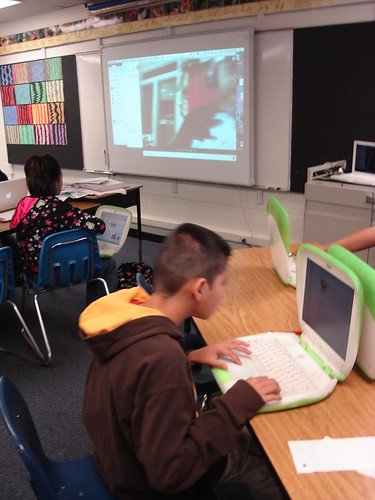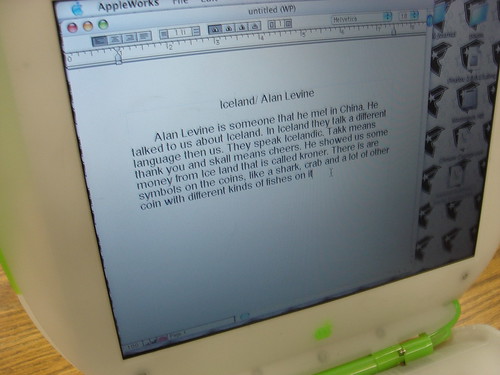
Students take notes on their laptops as Alan Levine
explains his experiences in Iceland.
We have been studying the environment, climate, climate change, energy and more in science getting ready for a new project we will be taking on soon. We got an unexpected boost when Alan Levine (AKA Cogdog) offered to Skype into our classroom from his temporary digs in Iceland.

Alan and I met in China this past September, and by chance he will be visiting the Reno area in a few weeks to talk with educators. He made arrangements to visit our classroom during his trip here so this way the students will get to see him both places. We talked about Iceland in general, and Alan shared why he was there (house sitting for friends for a month) and some of the sights he has seen. He explained some about geothermal energy, which supplies 90% of energy in Iceland (the other 10% is hydroelectric btw), and told of visiting volcanoes and geysers.
My class has had experiences with Skype now for 3 years. Early experiences were quiet … well except for me blabbing to fill in the void. My students are almost all second language learners and they shy away from speaking period, so imagine them speaking publicly! We have done many lessons on speaking and putting yourself out there and learning/practicing English by getting your feet wet in a real situation. We never force anyone to talk, but we encourage and have students practice what they might say. Some have spoken up, but generally we’ve been pretty quiet. In the last 6 months (I have had this class since 4th grade – now 6th graders) we have really improved in oral language and that came shining through today.

I have to give Alan some of the credit, he was very easy to talk to, and at ease speaking with them … even when they asked him questions like, ” Do they have Sponge Bob on TV in Iceland?” The more questions that were asked, the more at ease they were. I thought we would run out of things to talk about in 15 minutes, but the questions and comments flew for 20 minutes more. When we started to get a bit off track in our questioning we ended the conference and got to writing about the experience. We started making a word list of vocabulary that came up as students needed them … we worked together looking up spellings and locations. I had used Google Earth to travel from our schoolhttp://farm4.static.flickr.com/3004/3059747474_fd839fa3d9.jpg?v=1227645695 to Iceland before we met up with Alan, and we re-visited Google Earth to make sure we had a good understanding of where this really was (especially when one student wrote how Iceland isn’t far from the equator) … so as usual just-in-time learning was prevalent. This is also a great way to note misconceptions and deal with them before they get set.

We hope to finish our posts tomorrow and might even post them to our blog before we break for Thanksgiving. We spent a total of 40 minutes of class time to travel to Iceland and learn about a place most had never heard of for free, built schema, learned more about connecting and networking, and now we can research more, write, discuss, … good messy learning!
Tags: Iceland, Alan Levine, Skype


